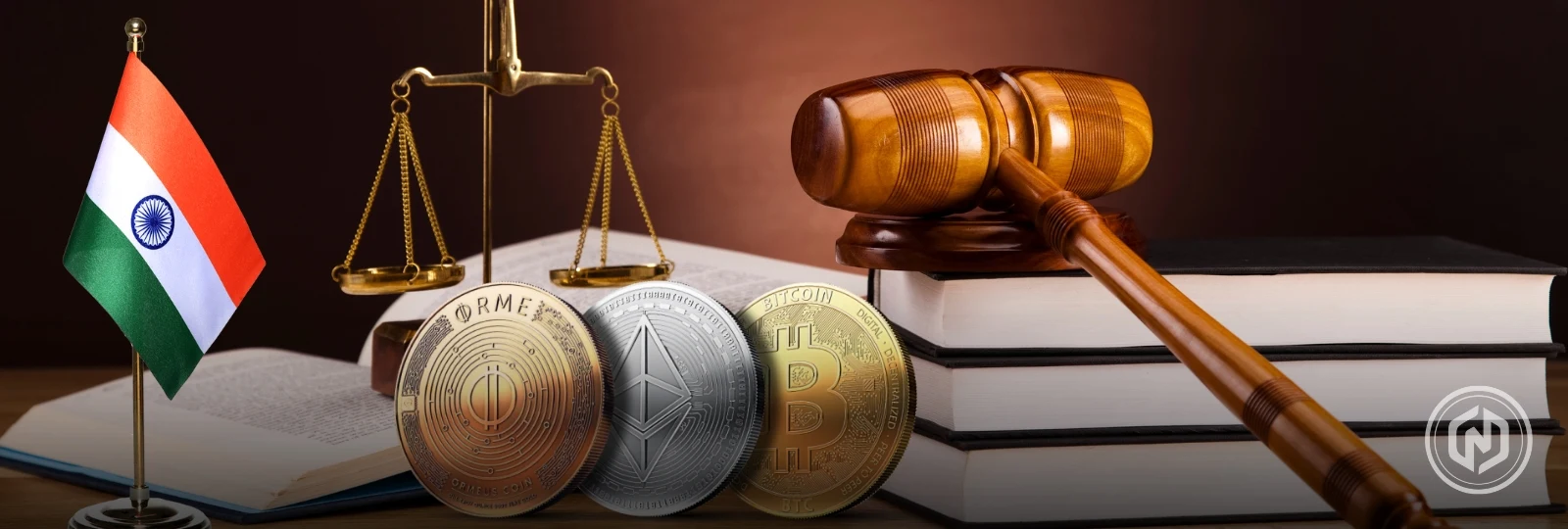What to Know:
India fears full regulation could legitimize crypto and raise systemic risks.
Major hacks at add pressure for stronger security and tighter policies.
Unlike the U.S., Japan, and the UK, India remains cautious, waiting on global frameworks before acting.
India is choosing to hesitate rather than hurry when it comes to cryptocurrency rules. A government document reviewed by Reuters reveals that officials are worried that fully regulating digital assets could introduce systemic risks i.e., threats to the entire financial system rather than making crypto safer.
No Full Legal Framework Yet
India’s finance ministry and central bank believe that bringing cryptocurrencies into the mainstream financial system isn’t something that can simply be managed with regulation. The concern is that legitimizing crypto via regulation could unintentionally make it a bigger threat. At the same time, banning crypto outright doesn’t stop P2P trades or platforms from growing.
Instead of rushing to pass a full legal framework, India is sticking with its current approach: limited oversight, high taxes, and strict rules for platforms, all aimed at keeping risks in check. And for now, it’s keeping crypto at arm’s length from the formal banking system.
RBI Warns of Financial Instability
Back in June, RBI Governor Sanjay Malhotra reiterated concerns about crypto trading. He warned that widespread crypto adoption could disrupt financial stability and interfere with the central bank’s ability to manage monetary policy effectively.
Meanwhile, India’s plans to produce a “discussion paper” on digital assets originally due in 2024 have been delayed. Officials say they want to see how the U.S. and other nations handle crypto before finalizing their own plan.
Despite overall caution, India has allowed big exchanges like Coinbase and Binance to register with its Financial Intelligence Unit, signaling cautious openness to digital asset services. Coinbase plans to restart retail operations in India only after compliance checks.
Why India Is Holding Back
India has about $4.5 billion worth of crypto sitting in the hands of traders but it’s not yet seen as a systemic threat. That said, officials are especially concerned about stablecoins cryptocurrencies pegged to major currencies like the U.S. dollar as they could undermine India’s homegrown digital payment systems, such as UPI.
The Indian government put a flat 30% tax on crypto profits and a 1% TDS on every transaction to stop people from speculative trading. Many people have found it hard to make money trading because of these high taxes and bad rules for offsetting losses.
High-profile security breaches have made things worse by shaking people’s trust. In July 2024, WazirX was hacked for $235 million, one of the biggest hacks in crypto history. This raised concerns about the safety of exchanges in India. Then, in July 2025, there was a $44 million breach in an internal wallet at CoinDCX. It strengthened the call for stronger rules, even though user funds were safe. The exchange offered a $11 million bounty to get the money back.
Talks Underway, No Rush to Regulate
India is treading carefully. A multi-agency panel including the RBI, SEBI, and the finance ministry is reviewing global standards and inviting feedback before making any decisions. India even wants a policy that protects innovation without compromising financial stability. Former RBI director G. Padmanabhan recently urged speedy clarity on stablecoins, warning that prolonged indecision could harm policy effectiveness and investor trust.
India’s cautious approach is different from what other countries are doing. The U.S. has passed laws about stablecoins and is working on more rules for cryptocurrencies. Japan and Australia are making plans for how to use crypto. Exchanges in Singapore and the UK are regulated and follow clear rules. India, on the other hand, has made things harder.
Final Thoughts
India is walking a fine line. The country wants to avoid unnecessary risk—but it also doesn’t want to fall behind. At this point, it’s clear that caution is the rule not action. Unlike more bullish countries, India is watching the global crypto debate closely before taking the leap.
Also Read: MYX Finance Price Skyrockets 1400%: Pump or Scam?


